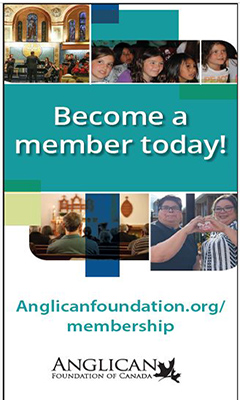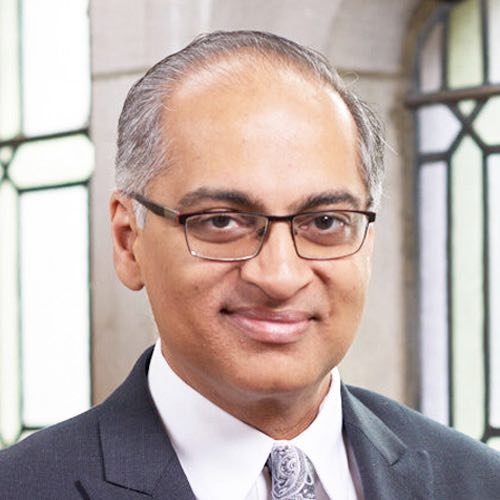Self-deception — many in North America engage in it when they claim not to be religious. Many churchgoers also deceive themselves when we say that we are, first and foremost, Christians. Let me explain.
I’m all for accepting what people say about themselves when it comes to matters religious. However, when people say that they are not religious, I am reluctant to roll with that self-description. Why? Much depends on definitions. Here’s one way to define “religion” — what you do with your desires. That is your religion. While this might seem a peculiar definition of religion, it is basically Biblical. Recall what Jesus says in the Gospel of Matthew: “For where your treasure is, there your heart will be also” (Mat. 6:21). What you treasure, what you value most, what you give yourself to, that is the object of your devotion. That is what you worship.
A related definition comes from the German-American theologian, Paul Tillich. Tillich famously defined faith, and by extension, religion as “the state of being grasped by an ultimate concern.” As a Christian theologian, Tillich insists that there is only one reality that properly ought to be our ultimate concern, namely God. But any number of substitutes can routinely claim our hearts.
As among the first Germans to be fired from his academic position because of his stout opposition to the Nazis, Tillich watched as nationalism became an ultimate concern — an idolatrous ultimate that possessed entire communities and even the German Christian church. I use the word “possess” advisedly; Tillich insisted that to be in the grip of a false ultimate concern is to be possessed by the demonic.
Put simply, most of us, even when we say that we are either non-religious or are Christian, are in truth claimed instead by capitalism. The spirit of capitalism, operating through the market, tutors and disciplines all our desiring. Our desires are, often without our knowing, being shaped by the advertising industry, our cellphones, cultural norms about what counts as a successful life, and even a growing sense that each of us must be both 1) a product to be sold on the open market, and 2) the advertiser of that product. Even those of us who have salaried positions are encouraged to develop a side hustle and monetize ourselves.
Increasingly, due to data accumulation, a host of companies including social media platforms knows us better than we know ourselves. Having access to our computer keystrokes and our eyeballs, corporations and online platforms know what to offer us to keep us online. They know what to put on our feeds, and they know about what kinds of reels (cute golden retriever videos for me!) will hook us.
Meanwhile, our children’s desires are exhaustively known and manipulated too. For instance, video game designers have an unprecedented familiarity with the psychology of addiction and put that knowledge to good use to keep our children gaming away. Our attention is now the commodity to be bought and sold. Where your treasure is indeed!
That is why — protests to the contrary notwithstanding — I insist that for most North Americans our true religion, what disciplines and shapes our desires most comprehensively, is capitalism. The market shapes our desires even as we sleep by tutoring us to dream capitalist dreams of wealth, power, sex, success and security.
By contrast, the average Anglican priest in our diocese has 12 to 15 minutes to preach a sermon that contests dominant capitalist practices of desire formation. We are, truth be told, hopelessly outgunned by the machinations of capitalism.
Why should this matter to the church and the broader society? Why should we take the trouble to fess up to the fact that our implicit religion is capitalism?
Honest acknowledgement is the first step towards resistance. So long as we naïvely believe ourselves to be masters of our own desires, just to that extent will we let ourselves be manipulated by those who know us better than we know ourselves. Saint Augustine famously affirmed that “God is nearer to us than we are to ourselves.” Today, we must say the same of the market.
Haven’t you found yourself holding your cellphone and staring at the screen without having formed a conscious intention to pull that phone out of your pocket? It’s as though your hand acted of its own volition. Haven’t you found yourselves scrolling in bed mindlessly at midnight when you had meant to crash at 10 p.m.? If we wish to set ourselves free from corporations and platforms that know how to manipulate our desires, then the first step must be honesty.
People who cannot admit that their operative spirituality is market driven is lying to themselves. Most who fill out “none” on religious surveys are hardly “nones,” and we Christians are more thoroughly capitalist than we are Christian. The church can serve the broader culture by equipping it to recognize its own blind spots, by equipping it to acknowledge what it does not wish to know about itself.
A second step: remembering that Jesus told us that we cannot serve both God and Mammon. We must take up concrete disciplines such as contemplative prayer and meditation to reclaim our desires from the market, and then we must reshape our longings to bring them into accord with the values of Jesus’s “kin-dom,” the Beloved Community. Truth-telling and transformative disciplines are essential to the demanding work of overcoming our idolatrous dedication to capitalist spiritualities.




